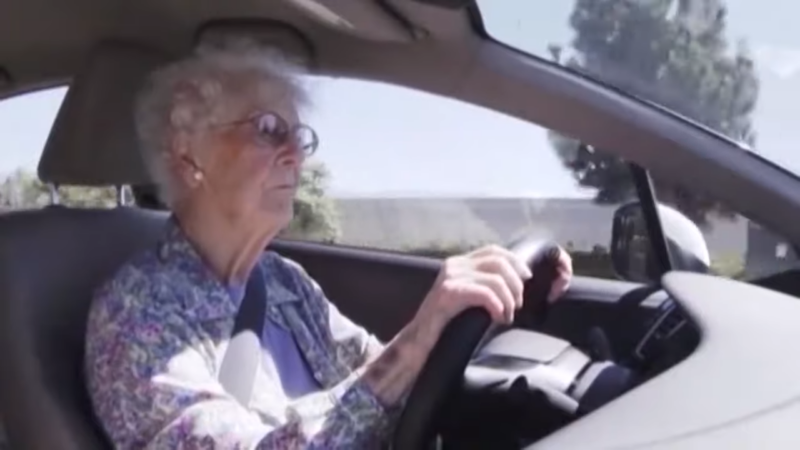Aging is a process filled with countless memories, experiences, and lessons learned over the years. But let’s be honest—getting older also comes with a few not-so-welcome surprises, like those creaky knees, fading eyesight, or needing reading glasses (no matter how much we try to resist).
One area that can feel especially challenging as we age is driving. For many, driving isn’t just a way to get from point A to B; it’s a symbol of freedom and independence. But at some point, we might need to ask ourselves—or our loved ones—whether it’s still safe to stay behind the wheel.
So, how do we know when it’s time to consider scaling back on driving? Let’s break down some important factors, signs to watch for, and strategies to keep everyone safe while still maintaining that treasured sense of independence.
Table of Contents
ToggleThe Impact of Aging on Driving Skills
Aging is inevitable, and with it, changes in our bodies and minds. Many of these changes can affect driving in ways we might not even realize until it becomes an issue.
Vision Changes
Eyesight is crucial for safe driving. With age, vision can naturally decline, making it harder to read road signs or see clearly at night. Conditions like cataracts, glaucoma, and macular degeneration can gradually reduce the field of vision and even impact depth perception.
Hearing Loss
Think of all the sounds you rely on while driving: horns, sirens, or even the hum of an engine. Hearing loss can sneak up on us, making it harder to notice those auditory cues.
Cognitive Shifts
Memory lapses and slower reaction times are pretty common as we age. But when you’re on the road, every second counts. Processing traffic signs, pedestrians, or sudden stops in front of you takes quick thinking.
Physical Limitations
Driving isn’t just about mental sharpness—it’s physical, too. Turning the steering wheel, pressing the pedals, or even looking over your shoulder to check a blind spot can be tough if arthritis or muscle weakness sets in.
To understand how physical impairments can impact your responsibilities as a driver, Singleton Schreiber provides a detailed overview you should definitely read.
Medication and Its Effects
A quick chat with your doctor or pharmacist can help figure out whether your meds might be messing with your driving.
Signs It Might Be Time to Limit Driving
Now, let’s talk about the warning signs that might mean it’s time to make some adjustments to driving habits:
Red Flags to Watch Out For
- Frequent Close Calls: If you’ve been having more near-misses than you’d like to admit, it’s worth paying attention.
- Difficulty Navigating Familiar Routes: Getting lost on roads you’ve driven for years can be unsettling and may indicate a bigger issue.
- Delayed Reactions: Slower responses to things like braking cars or merging traffic can make driving much riskier.
- Trouble Staying in Your Lane: If you find yourself drifting or needing to correct your position often, it’s worth reflecting on why that’s happening.
- Increased Anxiety: Feeling overly nervous behind the wheel can be a sign that it’s time to cut back on driving, especially if your confidence is dwindling.
How to Keep Driving Safely for as Long as Possible

There are plenty of ways to stay on the road safely if you’re proactive about it.
Regular Health Check-Ups
- Keeping up with routine visits to your doctor can help catch any changes before they become problems.
This includes eye exams, hearing tests, and talking with your doctor about any concerns you might have with memory or reaction times.
Adjusting Driving Habits
It’s totally fine to change up how you drive. For example:
Stick to daylight hours.
- Avoid driving in heavy traffic or bad weather.
- Choose familiar routes where you feel comfortable.
These little tweaks can go a long way in helping you feel more confident and stay safe on the road.
Refresh Driving Skills
Did you know there are driving courses specifically designed for older adults? Programs like AAA’s RoadWise Driver are great for brushing up on your skills and staying up-to-date on new traffic laws.
Even if you’ve been driving for decades, there’s always something new to learn.
Consider Vehicle Modifications
Sometimes, all it takes is a few adjustments to your car to make driving more comfortable. Things like pedal extenders, larger mirrors, or even better seat cushions can make a world of difference.
Conversations About Driving
Talking about driving limitations can be a touchy subject, especially if it involves a parent or loved one. No one wants to feel like they’re being treated like a child. If you need to have that conversation, approach it with care.
Tips for a Gentle Approach
- Start Early: Bringing up concerns sooner rather than later can help make the conversation less stressful.
- Focus on Safety: Instead of making it about taking away their keys, emphasize your concern for their safety and the safety of others.
- Involve Professionals: Sometimes, hearing it from a doctor can make it easier to accept than coming from a family member.
Planning for Life Without Driving
This old lady in front of me today was driving 25 on a 50 mile road while weaving into other lanes and ditches. I followed her for a bit to make sure she didn’t get hurt….but for the love of god people take care of your elderly. If they can’t drive, drive for them. pic.twitter.com/3dHmB4DGvX
— Natalie F Danelishen (@Chesschick01) June 27, 2021
Giving up driving doesn’t have to mean giving up your freedom. Nowadays, there are so many transportation options available, especially in urban areas.
Alternatives to Consider
- Public transit or community shuttles
- Ride-sharing apps like Uber or Lyft
- Senior transport services
- Carpooling with friends or family
The CDC’s MyMobility Plan is a great tool for planning out transportation options so that you can stay mobile without driving yourself.
Legal Considerations
Proportionally, drivers over 85 are the most dangerous on the roads. Totally vibes based campaign that will needlessly impinge on the lives of young people. Imagine taking the fight to young mothers by making it more difficult to do the school run. https://t.co/1BOdOEm1Nv pic.twitter.com/s5JFgxfhH0
— Tom Jones (@93vintagejones) May 12, 2024
In some areas, older drivers might have to renew their licenses more frequently or undergo additional testing.
Self-Reporting Systems
Some places rely on drivers to self-report medical conditions that could affect driving. But let’s face it—this isn’t always the most reliable method.
There have been calls for reform, especially after tragic accidents involving older drivers. So, if you’re concerned, it might be wise to take the initiative rather than waiting for a renewal notice.
Final Thoughts
Deciding when to cut back on driving—or stop altogether—isn’t easy. It’s a deeply personal choice that involves weighing safety, independence, and pride. But the good news is, with a bit of planning and a few adjustments, many older adults can continue driving safely for years.
The key is to stay informed, pay attention to the signs, and be open to making changes when needed. And if you’re a family member or caregiver, approaching the conversation with empathy and respect can make all the difference.
After all, driving might just be about getting somewhere, but it also represents so much more—freedom, autonomy, and the ability to stay connected to the world.
Related Posts:
- When Should You Be Concerned About Oxygen Levels in…
- Dental Health After 60 - Everything Seniors Should Know
- How to Tell If Aging Is Catching Up to You Faster…
- At What Age Are You Considered Elderly?
- 11 Common Causes of Low Oxygen Levels in Elderly Adults
- Pacemaker Surgery Recovery in the Elderly - What to…









